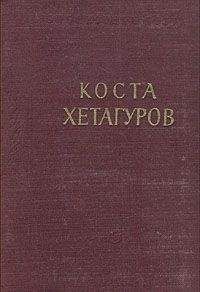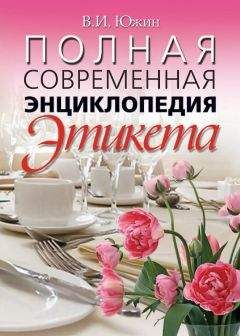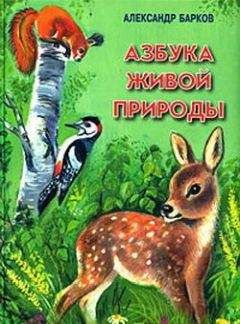Владимир Набоков - Стихотворения
419. AN EVENING OF RUSSIAN POETRY{*}
«…seems to be the best train. Miss Ethel Winter of the Department of English will meet you at the station and…»
From a letter addressed to the visiting speakerThe subject chosen for tonight's discussion
is everywhere, though often incomplete:
when their basaltic banks become too steep,
most rivers use a kind of rapid Russian,
and so do children talking in their sleep.
My little helper at the magic lantern,
insert that slide and let the colored beam
project my name or any such-like phantom
in Slavic characters upon the screen.
The other way, the other way. I thank you.
On mellow hills the Greek, as you remember,
fashioned his alphabet from cranes in flight;
his arrows crossed the sunset, then the night.
Our simple skyline and a taste for timber,
the influence of hives and conifers,
Yes, Sylvia?
«Why do you speak of words
when all we want is knowledge nicely browned?»
Because all hangs together — shape and sound,
heather and honey, vessel and content.
Not only rainbows — every line is bent,
and skulls and seeds and all good words are round,
like Russian verse, like our colossal vowels:
those painted eggs, those glossy pitcher flowers
that swallow whole a golden bumblebee,
those shells that hold a thimble and the sea.
Next question.
«Is your prosody like ours?»
Well, Emmy, our pentameter may seem
to foreign ears as if it could not rouse
the limp iambus from its pyrrhic dream.
But close your eyes and listen to the line.
The melody unwinds; the middle word
is marvelously long and serpentine:
you hear one beat, but you have also heard
the shadow of another, then the third
touches the gong, and then the fourth one sighs.
It makes a very fascinating noise:
it opens slowly, like a greyish rose
in pedagogic films of long ago.
The rhyme is the line's birthday, as you know,
and there are certain customary twins
in Russian as in other tongues. For instance,
love automatically rhymes with blood,
nature with liberty, sadness with distance,
humane with everlasting, prince with mud,
moon with a multitude of words, but sun
and song and wind and life and death with none.
Beyond the seas where I have lost a scepter,
I hear the neighing of my dappled nouns,
soft participles coming down the steps,
treading on leaves, trailing their rustling gowns,
and liquid verbs in ahla and in ili,
Aonian grottoes, nights in the Altai,
black pools of sound with «l» s for water lilies.
The empty glass I touched is tinkling still,
but now 'tis covered by a hand and dies.
«Trees? Animals? Your favorite precious stone?»
The birch tree, Cynthia, the fir tree, Joan.
Like a small caterpillar on its thread,
my heart keeps dangling from a leaf long dead
but hanging still, and still I see the slender
white birch that stands on tiptoe in the wind,
and firs beginning where the garden ends,
the evening ember glowing through their cinders.
Among the animals that haunt our verse,
that bird of bards, regale of night, comes first:
scores of locutions mimicking its throat
render its every whistling, bubbling, bursting,
flutelike or cuckoolike or ghostlike note.
But lapidary epithets are few;
we do not deal in universal rubies.
The angle and the glitter are subdued;
our riches lie concealed. We never liked
the jeweler's window in the rainy night.
My back is Argus-eyed. I live in danger.
False shadows turn to track me as I pass
and, wearing beards, disguised as secret agents,
creep in to blot the freshly written page
and read the blotter in the looking glass.
And in the dark, under my bedroom window,
until, with a chill whirr and shiver, day
presses its starter, warily they linger
or silently approach the door and ring
the bell of memory and run away.
Let me allude, before the spell is broken,
to Pushkin, rocking in his coach on long
and lonely roads: he dozed, then he awoke,
undid the collar of his traveling cloak,
and yawned, and listened to the driver's song.
Amorphous sallow bushes called rakeety,
enormous clouds above an endless plain,
songline and skyline endlessly repeated,
the smell of grass and leather in the rain.
And then the sob, the syncope (Nekrasov!),
the panting syllables that climb and climb,
obsessively repetitive and rasping,
dearer to some than any other rhyme.
And lovers meeting in a tangled garden,
dreaming of mankind, of untrammeled life,
mingling their longings in the moonlit garden,
where trees and hearts are larger than in life.
This passion for expansion you may follow
throughout our poetry. We want the mole
to be a lynx or turn into a swallow
by some sublime mutation of the soul.
But to unneeded symbols consecrated,
escorted by a vaguely infantile
path for bare feet, our roads were always fated
to lead into the silence of exile.
Had I more time tonight I would unfold
the whole amazing story — neighuklúzhe,
nevynossímo — but I have to go.
What did I say under my breath? I spoke
to a blind songbird hidden in a hat,
safe from my thumbs and from the eggs I broke
into the gibus brimming with their yolk.
An now I must remind you in conclusion,
that I am followed everywhere and that
space is collapsible, although the bounty
of memory is often incomplete:
once in a dusty place in Mora county
(half town, half desert, dump mound and mesquite)
and once in West Virginia (a muddy
red road between an orchard and a veil
of tepid rain) it came, that sudden shudder,
a Russian something that I could inhale
but could nor see. Some rapid words were uttered —
and then the child slept on, the door was uttered —
and then the child slept on, the door was shut.
The conjurer collects his poor belongings —
the colored handkerchief, the magic rope,
the double-bottomed rhymes, the cage, the song.
You tell him of the passes you detected.
The mystery remains intact. The check
comes forward in its smiling envelope.
«How would you say „delightful talk“ in Russian?»
«How would you say „good night“?»
Oh, that would be:
Bessónnitza, tvoy vzor oonýl i stráshen;
lubóv moyá, otstóopnika prostée.
(Insomnia, your stare is dull and ashen,
my love, forgive me this apostasy.)
420. THE ROOM{*}
The room a dying poet took
at nightfall in a dead hotel
had both directories — the Book
of Heaven and the Book of Bell.
It had a mirror and a chair,
it had a window and a bed,
its ribs let in the darkness where
rain glistened and a shopsign bled.
Not tears, not terror, but a blend
of anonymity and doom,
it seemed, that room, to condescend
to imitate a normal room.
Whenever some automobile
subliminally slit the night,
the walls and ceiling would reveal
a wheeling skeleton of light.
Soon afterwards the room was mine.
A similar striped cageling, I
groped for the lamp and found the line
«Alone, unknown, unloved, I die»
in pencil, just above the bed.
It had a false quotation air.
Was it a she, wild-eyed, well-read,
or a fat man with thinning hair?
I asked a gentle Negro maid,
I asked a captain and his crew,
I asked the night clerk. Undismayed,
I asked a drunk. Nobody knew.
Perhaps when he had found the switch
he saw the picture on the wall
and cursed the red eruption which
tried to be maples in the fall?
Artistically in the style
of Mr. Churchill at his best,
those maples marched in double file
from Glen Lake to Restricted Rest.
Perhaps my text is incomplete.
A poet's death is, after all,
a question of technique, a neat
enjambment, a melodic fall.
And here a life had come apart
in darkness, and the room had grown
a ghostly thorax, with a heart
unknown, unloved — but not alone.
421. VOLUPTATES TACTIONUM[16]{*}
Some inevitable day
On the editorial page
Of your paper it will say,
«Tactio has come of age».
When you turn a knob, your set
Will obligingly exhale
Forms, invisible and yet
Tangible — a world in Braille.
Think of all the things that will
Really be within your reach!
Phantom bottle, dummy pill,
Limpid limbs upon a beach.
Grouped before a Magnotact,
Clubs and families will clutch
Everywhere the same compact
Paradise (in terms of touch).
Palpitating fingertips
Will caress the flossy hair
And investigate the lips
Simulated in midair.
See the schoolboy, like a blind
Lover, frantically grope
For the shape of love — and find
Nothing but the shape of soap.
422. RESTORATION{*}
To think that any fool may tear
by chance the web of when and where.
O window in the dark! To think
that every brain is on the brink
of nameless bliss no brain can bear,
unless there be no great surprise —
as when you learn to levitate
and, hardly trying, realize
— alone, in a bright room — that weight
is but your shadow, and you rise.
My little daughter wakes in tears:
She fancies that her bed is drawn
into a dimness which appears
to be the deep of all her fears
but which, in point of fact, is dawn.
I know a poet who can strip
a William Tell or Golden Pip
in one uninterrupted peel
miraculously to reveal,
revolving on his fingertip,
a snowball. So I would unrobe,
turn inside out, pry open, probe
all matter, everything you see,
the skyline and its saddest tree,
the whole inexplicable globe,
to find the true, the ardent core
as doctors of old pictures do
when, rubbing our a distant door
or sooty curtain, they restore
the jewel of a bluish view.
423. THE POPLAR{*}
Before this house a poplar grows
Well versed in dowsing, I suppose,
But how it sighs! And every night
A boy in black, a girl in white
Beyond the brightness of my bed
Appear, and not a word is said.
On coated chair and coatless chair
They sit, one here, the other there.
I do not care to make a scene:
I read a glossy magazine.
He props upon his slender knee
A dwarfed and potted poplar tree.
And she — she seems to hold a dim
Hand mirror with an ivory rim
Framing a lawn, and her, and me
Under the prototypic tree,
Before a pillared porch, last seen
In July, nineteen seventeen.
This is the silver lining of
Pathetic fallacies: the sough
Of Populus that taps at last
Not water but the author's past.
And note: nothing is ever said.
I read a magazine in bed
Or the Home Book of Verse; and note:
This is my shirt, that is my coat.
But frailer seers I am told
Get up to rearrange a fold.
424. LINES WRITTEN IN OREGON{*}




